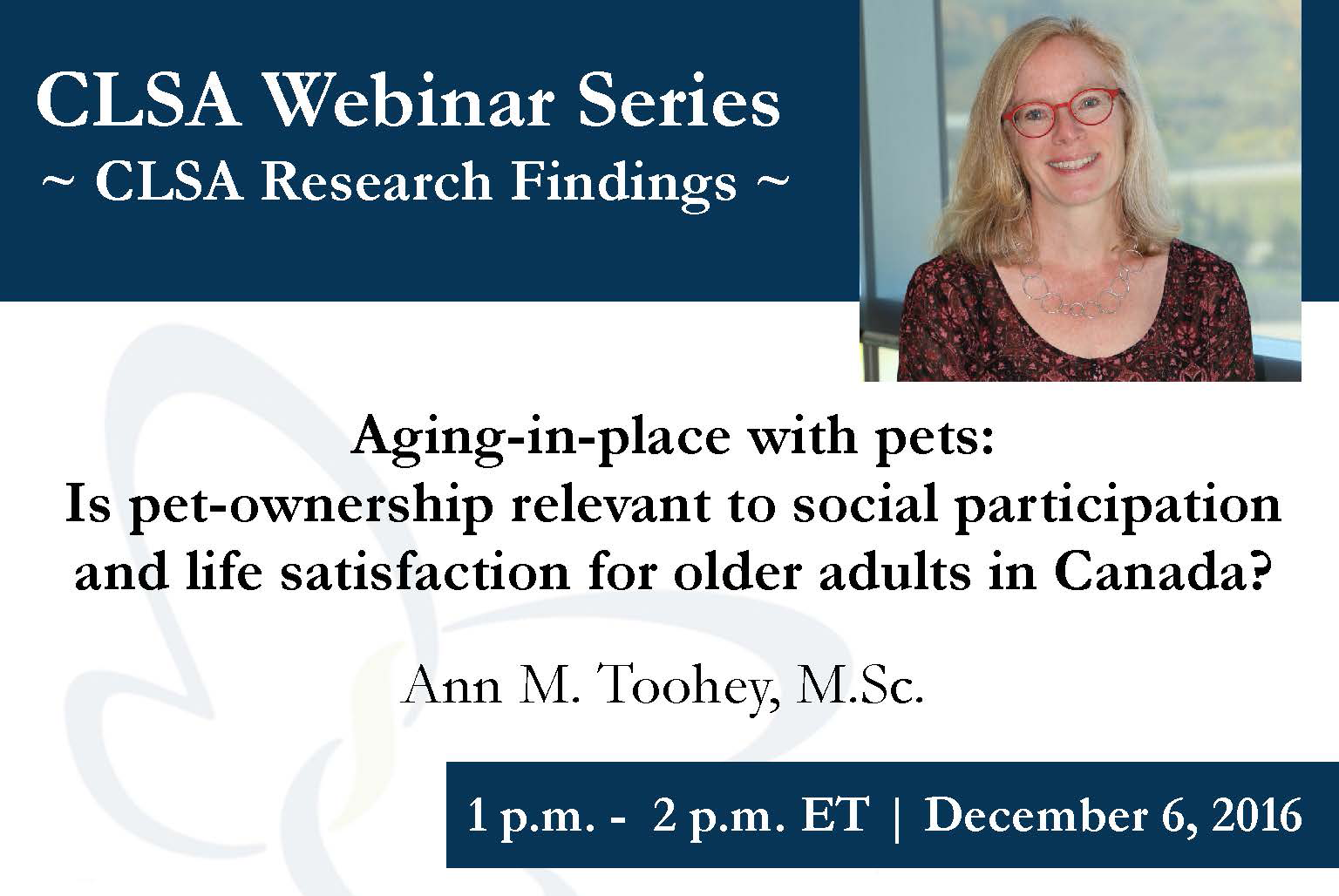Year:
Applicant:
Trainee:
Institution:
Email:
mrock@ucalgary.ca
Project ID:
141206
Approved Project Status:
Project Summary
This study will explore pet-ownership among senior citizens so as to promote healthy aging, and will seek to understand the socially situated challenges that some seniors face in terms of having, or even caring for, a pet. The first component will use interviews and direct observation to investigate the population health implications of pets by understanding the effects companion animal relationships have on the life experiences of older adults. In particular, I focus on three key areas of aging: physical activity, social engagement, and mental health. Next, I will explore both the benefits and challenges of pet-ownership for socially-isolated and lower income seniors by interviewing staff and volunteers in social support agencies and other organizations that serve this population. Alongside these two components, I will investigate socio-demographic trends in terms of pet-ownership and health outcomes for seniors using data from the Canadian Longitudinal Study on Aging. In particular, I will consider whether animal companionship may have different implications for the physical and mental well-being of socially-isolated or low income seniors, compared to those living in more secure financial and social circumstances. Together, these three components will create a detailed and novel understanding of both the health implications of pets for seniors, but also the barriers in community services and supports that could be targeted for redress, thus contributing to health equity for older adults.
Project Findings
This study explored pet-ownership among seniors in relation to age-friendly policies and practices linked to healthy aging. We used interviews and direct observation to investigate the population health implications of older adults’ relationships with pets. We also explored prospective benefits and challenges of pet-ownership for socially-isolated and lower income seniors by interviewing staff and volunteers in social support and animal welfare agencies, as well as other organizations that serve this population. Finally, we investigated socio-demographic trends and health outcomes for seniors with pets using data from the CLSA. In particular, we considered whether animal companionship may have different implications for social inclusion and mental well-being of older adults living in a range of financial and social circumstances. Together, these three components created a detailed and novel understanding of both the health implications of pets for seniors and the barriers in community services and supports that could be targeted for redress. Our findings help frame human-animal relationships as being relevant to age-friendly policies and practices, which ultimately contribute to health equity and social justice for older adults.
